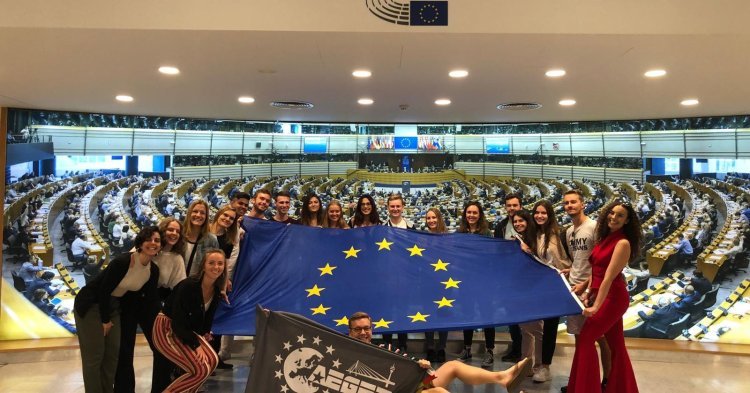When our politicians blame “Brussels” when asked to explain new directives, government plans or actions, it is reminiscent of the reggae singer Shaggy who sang “it wasn’t me”. But let’s remember how the institutions work: the European Commission proposes, and then the European Parliament and the Council of Ministers have the last word.
The Members of the European Parliament are elected by the citizens every five years. The European Parliament will then audition and approve the twenty-eight Commissioners, one for each Member State. The Council consists of each country’s ministers who will individually represent the interests of each member state, respectively.
So, to answer the previous question, “Brussels” is a typical representative democracy. But why blame others instead of taking responsibility for what’s going on in the European scene? Because it is convenient. An ignorant voter is easy for a politician to handle – and constantly at risk of being conned. When you are a politician, it is easier to construe “Brussels” as an opaque bubble that citizens cannot understand or penetrate.
Brussels bubble, Budapest bubble, Berlin bubble, …
In my capacity as JEF Spain’s International Officer, last week I attended an AEGEE Düsseldorf summer seminar at the heart of Europe. As we met the President of AEGEE-Europe, it caught my attention when he mentioned that “Brussels is a bubble, you can go to different places and you will keep finding the same people over and over”.
But strikingly, throughout the seminar, the same bubble analogy appeared when we spoke about the problems that we thought we had at a national level. One participant from Hungary hit the nail on the head: “My closest friends and I are pro-EU and we all think likewise about several topics, but I am also aware that I live in a bubble. What is happening around me, what I hear and what I live through has nothing to do with what happens in our government and what happens in some places along the countryside. I cannot speak in the name of my country because my vision of politics is distorted”.
This led me to rethink my own vision of my country: aren’t we all in some sort of bubble, after all? How to distinguish between what is actually happening and what our tunnel vision allows us to see? Who, if anyone, is entitled to speak in the name of their country?
With the newly elected President of the European Commission, I could not miss the opportunity to ask one of the German participants for her opinion on Ursula von der Leyen. “It really caught us off guard, we saw her as the defence minister but we never knew details about her performance, and all of a sudden she gets elected for the presidency of the European Commission”, she said.
Another example from the seminar was when a Ukrainian participant spoke about the Minsk Agreements, and about how the EU should act as a mediator to help avoid further conflicts between Ukraine and Russia. These agreements represent an attempt to find peace at our backdoor, but who outside ‘the bubble’ is talking about this? Whichever country we are talking about, we come to the same issue of bubbles.
Bursting the bubble – together
No matter how many campaigns, street actions and speeches we give, if the voters continue to see our political panorama as some bubble that only those in higher positions have access to, we cannot build a more representative Europe.
With the rise of the new technologies, I can’t help but wonder if we are making the most of these endless opportunities of connecting. Even if the transparency of our institutions and the possibilities of reaching out our politicians are higher than ever, it is apparently not enough for the public – which leads me to think that the problem is a simple lack of interest.
A more exciting medium might help incite this interest. Using apps and forum networking might bring us to the solution, developing the tools that we already have. I suggest that the approach to the youngest generations should be more direct, specially through social media, facilitating encounter points for all kinds of people.
Discussing current affairs in an international group was a reminder that we are more similar than we think, and that our internal problems are mostly the same – including alienation from politics. Common challenges require common solutions. Maybe it is time to work together to burst this bubble – and maybe we will find out that borders do not determine who gets splashed.


Follow the comments: |
|
